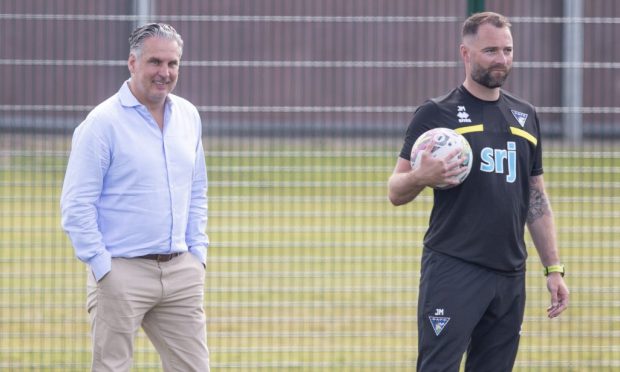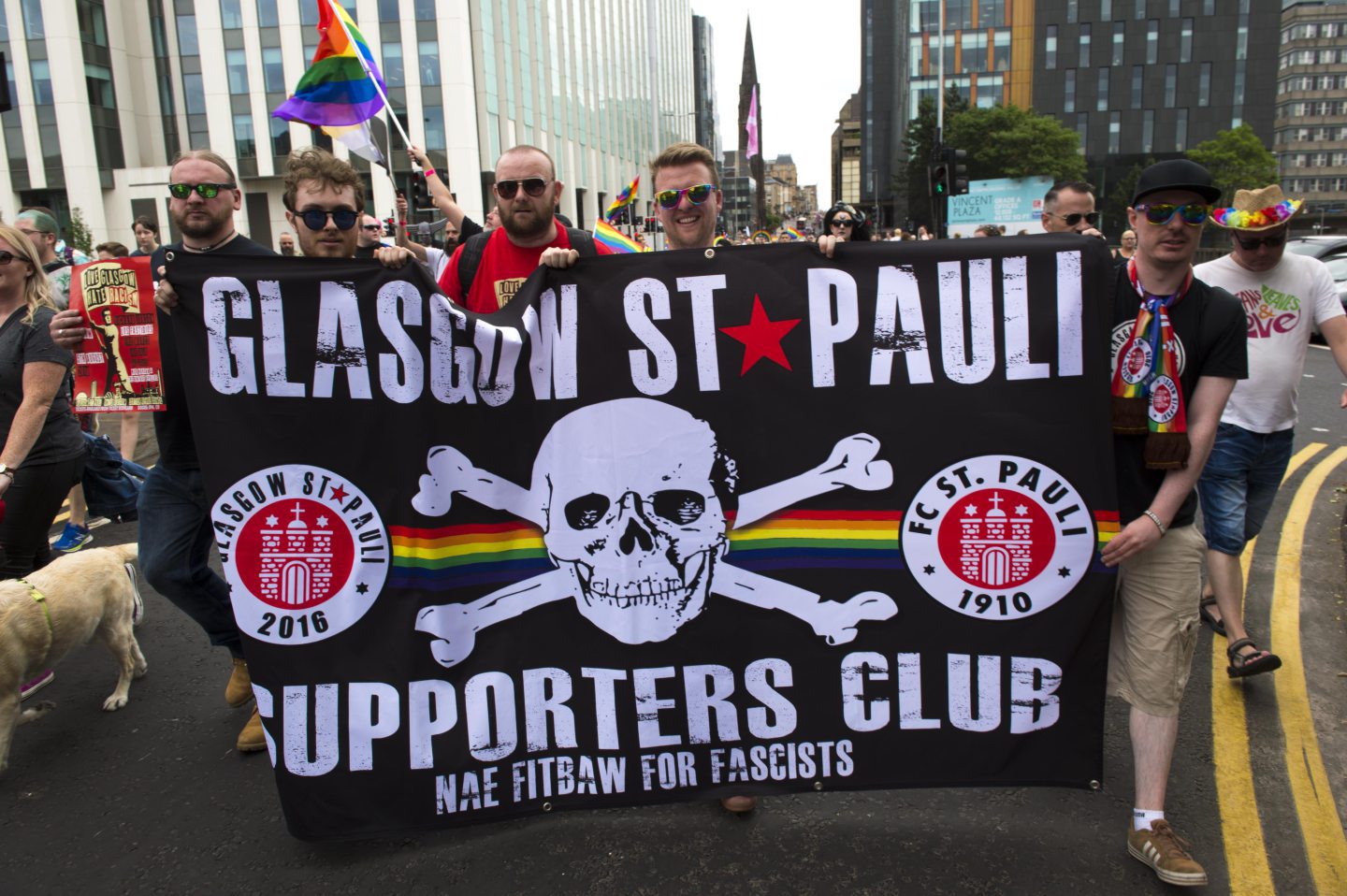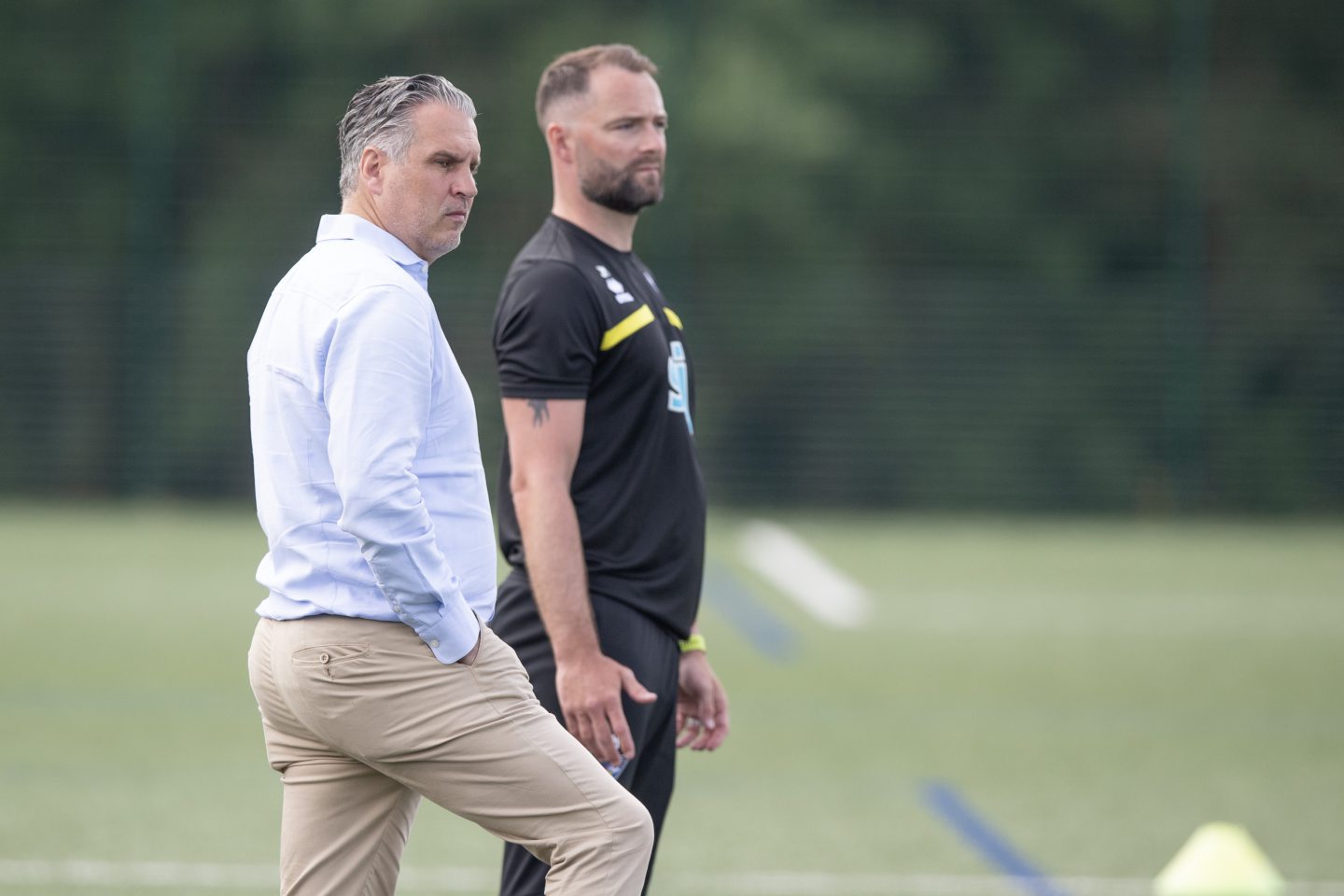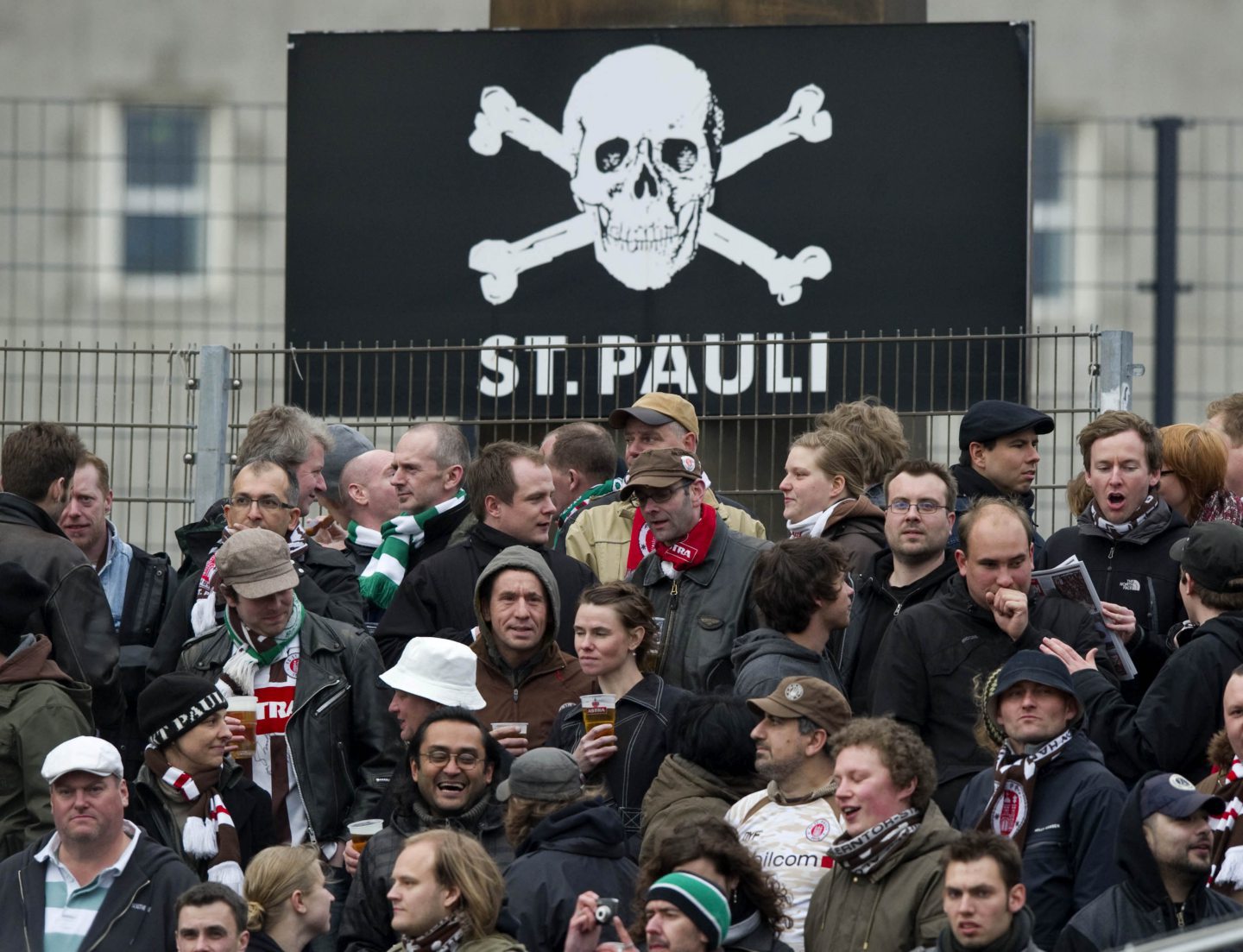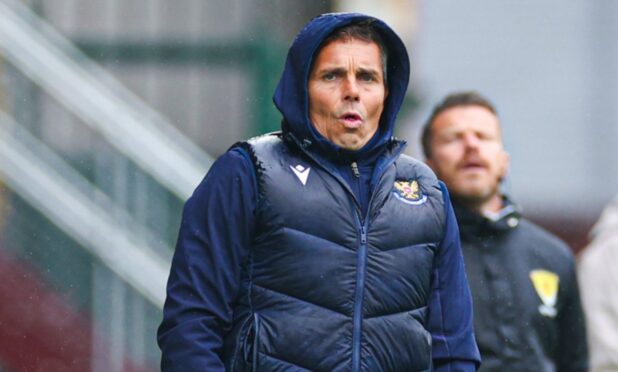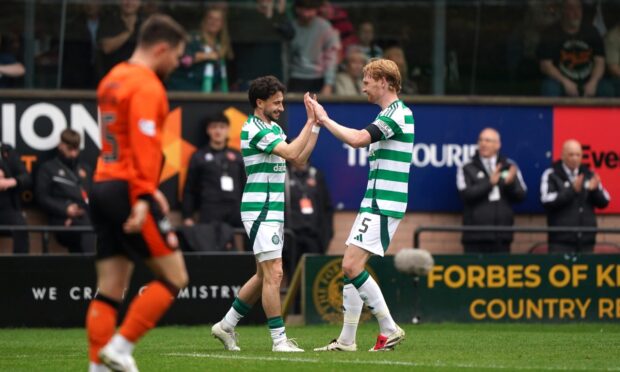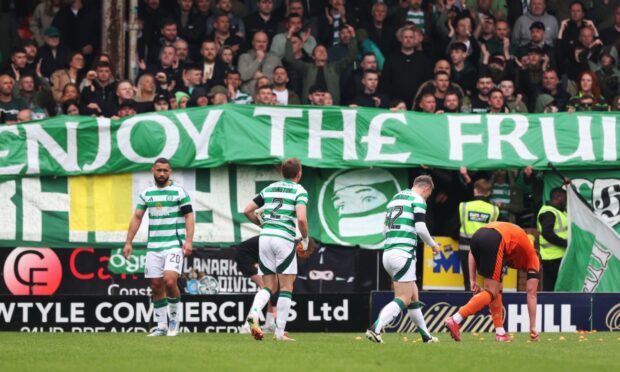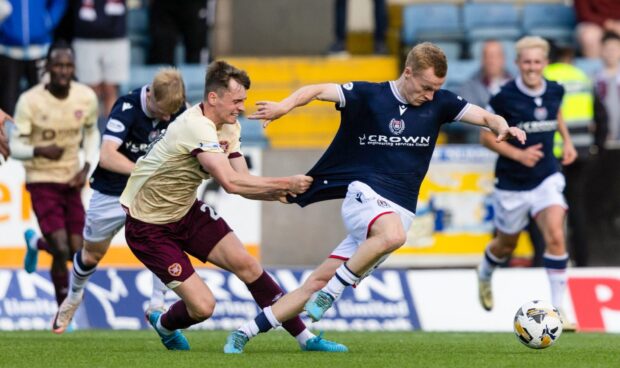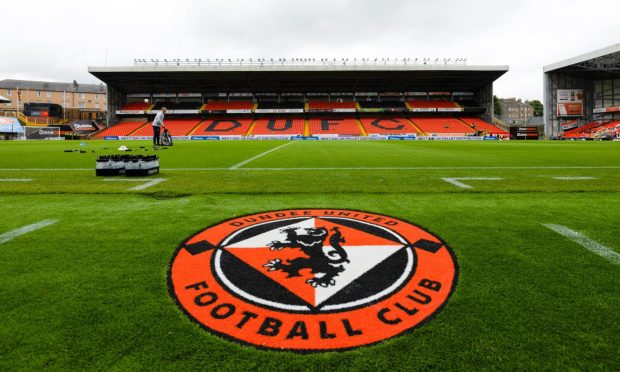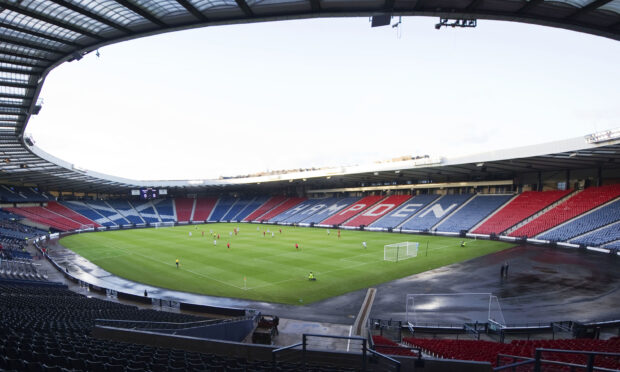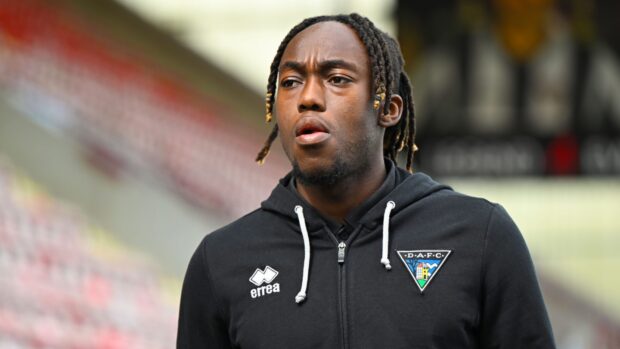Dunfermline sporting director Thomas Meggle isn’t exactly sure why St Pauli’s popularity stretches beyond German borders.
The Bundesliga 2 club will attract supporters from across Scotland and beyond for Friday night’s preseason friendly against the Pars.
The away end is already sold out and a sizable home support is also expected.
While the reasons for their broader appeal may not be clear, St Pauli’s unique identity means they are often listed as people’s ‘second club’ in Germany.
Meggle was born in Munich but has become a supporter of Kiezkicker after spells as a player, coach, manager and director of football.
A festival of football
Although not involved with St Pauli anymore, he maintains a good relationship with the club – a connection that explains this Friday’s friendly that Meggle is “excited to host”.
“I hope that we have a great football atmosphere here on Friday and I hope that it will be a great football festival,” he added.
As is usual on one of his regular visits, Meggle has spent time catching up with manager James McPake – although he has avoided speaking to the Pars boss about the upcoming fixture.
“I don’t want to create a fear,” said Meggle. “I watched their games last season and they played unbelievably good, unbelievably well.
“I have never seen a St Pauli team in the last 20 years who played such good football.”
Left-wing leanings
St Pauli, like the Pars, are preparing for a campaign in a strong second tier.
They will do so with a vibrant, left-leaning fan base – the story of which stretches back to the 1980s.
“St Pauli was founded in 1910 and originally it was only the second club in Hamburg,” explained Meggle.
“It is like a regional club in Hamburg, based in St Pauli – which is the port region with bars, pubs, red light district and things like that.
“They played mostly in the highest league before Bundesliga was founded but they played second and third tier in Germany until promoted in the 70s or 80s. Then it was only a football club.
“There is a street in St Pauli which is called Hafenstrasse. It is a street at the port where the houses were empty and Hamburg struggled to find apartments.
Skull and crossbones
“Left-wing people demonstrated against the quality of houses and with the police it was like a war situation at this time in Hamburg on the Hafenstrasse.
“It was ridiculous because they fought from Monday to Saturday with the police and took Sunday off!
“The demonstrators went to the stadium of St Pauli so that is the reason why St Pauli from the 80s, an unpolitical football club became a football club with policy.
“Beside the stadium there is a large car park where four times a year they hold a big fun fair.
“One of the shops sold a flag with the skull [and crossed bones] and one of the demonstrators just bought this and brought it into the stadium.
“That is the reason why the skull is now part of St Pauli.”
